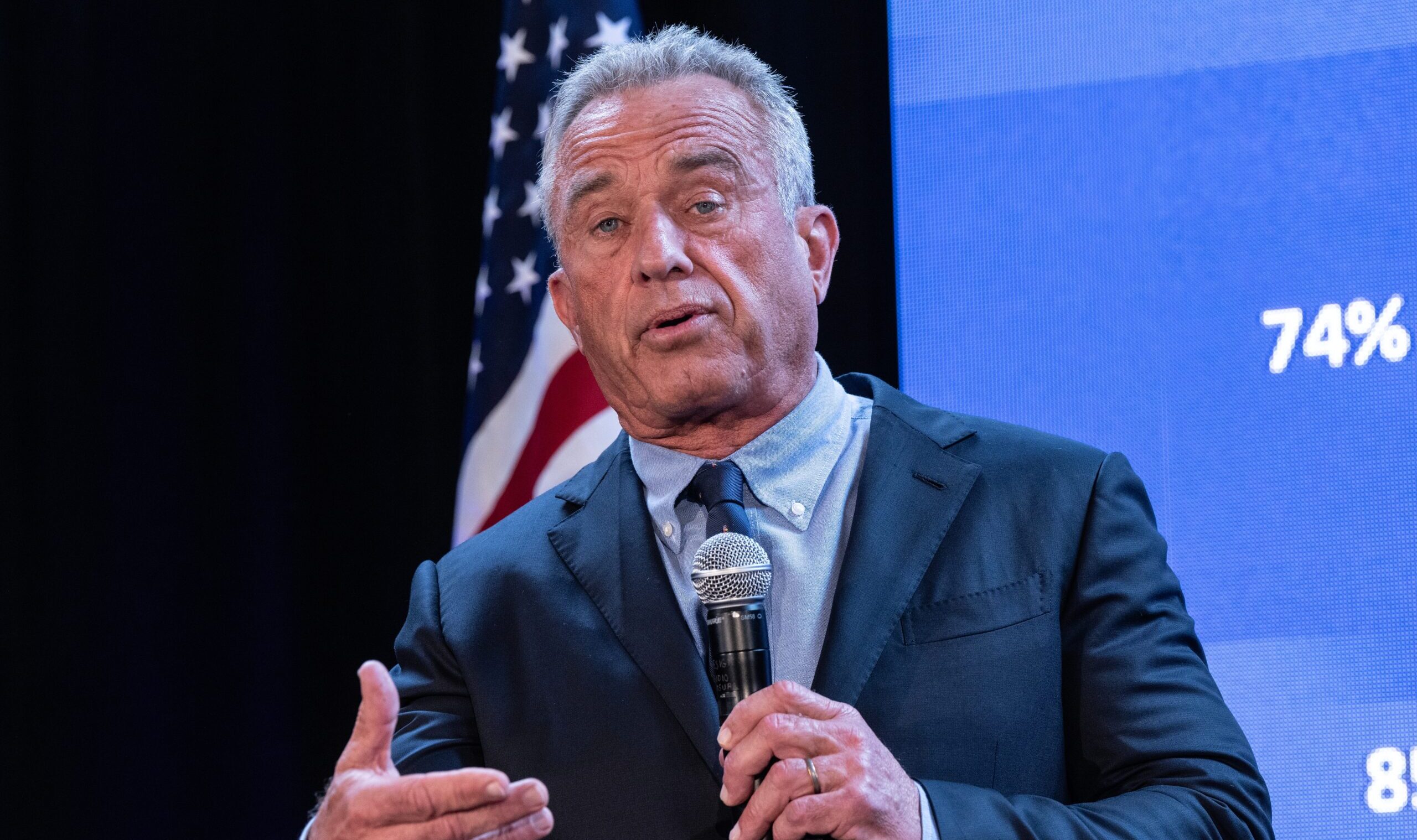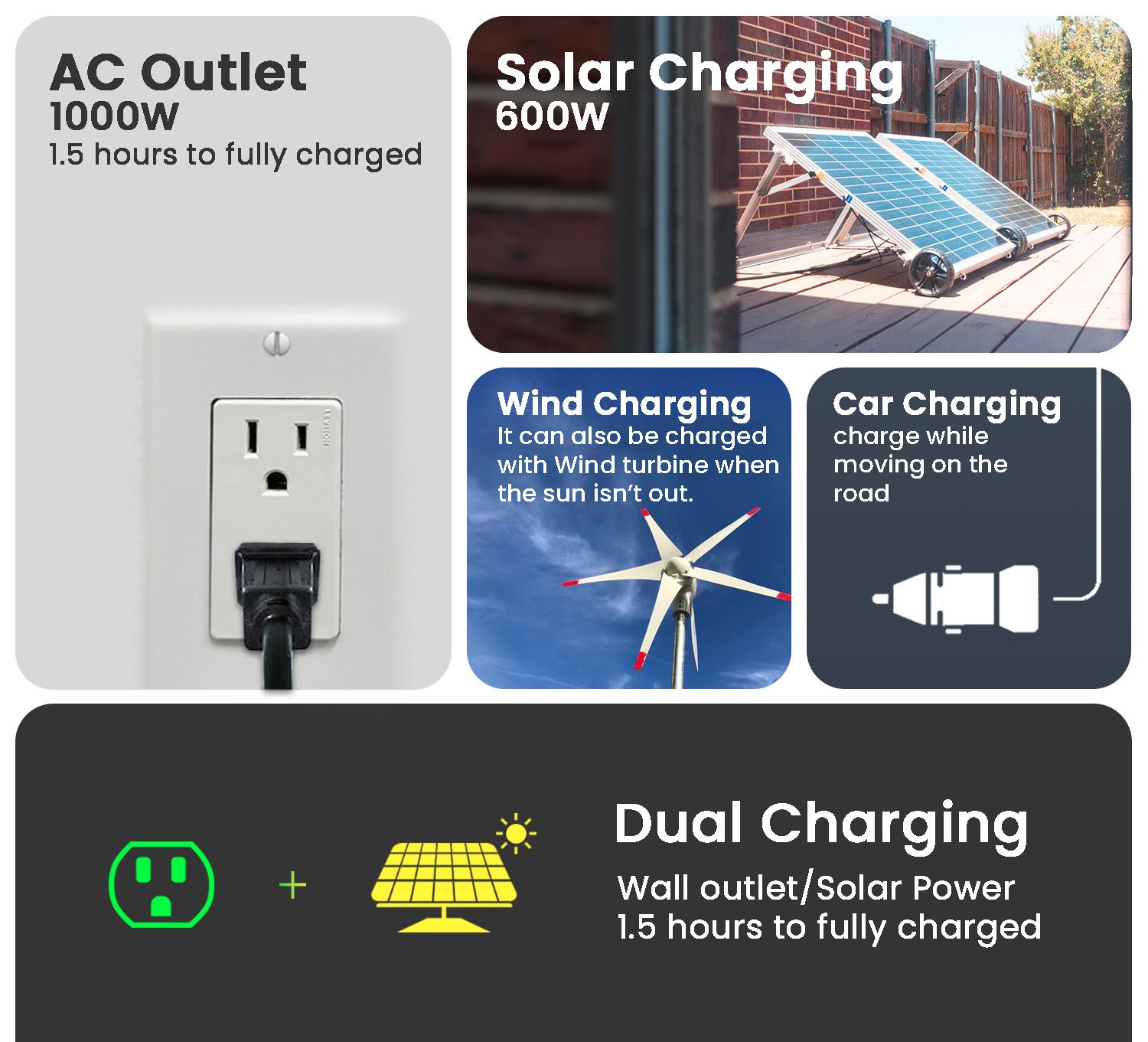Will RFK Kibosh Ozempic?
The potential HHS secretary has sent mixed messages about popular new weight-loss drugs.

When Donald Trump nominated Robert F. Kennedy Jr. as secretary of the Department of Health and Human Services on Thursday, pharmaceutical and processed food companies’ stock tanked.
The environmentalist and pharma skeptic suspended his presidential campaign to be considered for a health czar position in the Trump administration, capitalizing on his long-standing skepticism of the connections between Big Pharma, Big Food, and Big Government. At his October 27 Madison Square Garden rally, Trump said Kennedy should “go wild” on reforming the largest department by budget in the federal government. Now he’s ready for the shiny prize—the top spot at HHS. That is, if he can survive the hazing from the Trump team: he was photographed over the weekend grimacing over a Big Mac in the boss’s private plane. Kennedy’s “make America healthy again” plan starts “tomorrow,” said Donald Trump, Jr.
Should he make it through the nomination process, Kennedy plans to follow Trump’s mandate to remove “corruption” from HHS-led regulatory agencies such as the FDA and “end the chronic disease epidemic,” in large part by removing the highly processed foods that he believes lead to many Americans’ poor state of health.
One highly popular drug is at the confluence of these mandates for deregulation and healthy alternatives: Ozempic. It and its class of sister drugs prescribed for weight loss are being sold as a magic pill (or shot) for lowering America’s rates of obesity, a condition that is said to increase the risk for many of the diseases Kennedy wants to eradicate. But would Kennedy’s “Make America Healthy Again” program take the drug-skeptical, food-as-medicine approach to weight loss mainstream, or turn it into another conspiracy theory?
On the one hand, Kennedy’s line on health care seems to follow the libertarian-populist, anti-establishment approach of the second Trump administration. He has supported abortion access throughout pregnancy and wants the FDA to stop its “aggressive suppression of psychedelics, peptides, stem cells, raw milk, hyperbaric therapies, chelating compounds, ivermectin, hydroxychloroquine, vitamins, clean foods, sunshine, exercise, nutraceuticals and anything else that advances human health and can’t be patented by Pharma,” as he tweeted last month. He also said that he would purge “entire departments” of the FDA to get drugs approved faster and allow more experimental treatments.
He intends to “level the playing field” on the price of drugs, citing Germany’s much lower prices for Ozempic because of the country’s system for drug price negotiation. “While Berlin negotiates prices on behalf of all Germans, Washington can’t do the same,” he wrote an op-ed in the Wall Street Journal. “Legislators should cap drug prices so that companies can’t charge Americans substantially more than Europeans pay.”
Questions remain about the actual effects of lowering drug costs: Novo Nordisk, the maker of Ozempic and Wegovy, has argued that lowering list prices actually fails to increase access and lower costs for consumers (a claim that Bernie Sanders and the Senate HELP Committee dispute). There’s also a large off-label market of versions of the drugs with varying levels of reliability. The FDA allows pharmacies and online providers such as Hims & Hers to produce compounded or “copy” versions during drug shortages like the one declared for semaglutide (the medication in many of the new weight-loss drugs). A black market for even wilder concoctions flourishes on social media and by word of mouth. How Kennedy-style price caps would affect these operations remains to be seen, but—barring a major change in supply from the main producers—one could expect even more competition for the drugs and the possibility of more scarcity, and thus more under-the-table dealing.
While weight-loss drug companies don’t seem in much danger of losing interest from consumers, then, Kennedy’s plans for downsizing the FDA do seem to be making Novo Nordisk and friends nervous about future approvals, prices, and access. “There is concern on agency resources, commentary on [weight loss drugs] and also vaccines,” Michael Yee, an analyst at Jefferies, told the Financial Times after the nomination.
Kennedy isn’t going to take down Ozempic. But he’s no cheerleader like Bernie Sanders, who preaches the “human right” to health care and argues that Novo Nordisk should lower its prices so Americans can access the drugs “they need to lead healthy, happy and productive lives.” In fact, Kennedy said last month that Novo Nordisk is “counting on selling it to Americans because we’re so stupid and so addicted to drugs.” Sanders’s moral duty is Kennedy’s health hazard.
This belief that obesity is a bigger problem than a lack of the right drug prescription is why much of the MAHA program is about not drugs but food. “Most people with diabetes or pre-diabetic can be cured with good food,” Kennedy said in an October interview on Fox News. “The first thing I’d do [is] tell the cereal companies to take all of the dyes out of their food.”
To some, this plan may seem to come from out of the blue. But it echoes an argument among whole-food advocates and nutrition scientists that the existence of additives and prevalence of processing in Americans’ food lead to conditions and diseases such as hypertension, heart disease, and cancer—the same things for which obesity itself is often blamed. Kennedy, to take one recent example, has accused American Froot Loops of being less healthy than the Canadian version because of dyes that he says have been shown to cause hyperactivity in children (something the FDA disputes).
On food as opposed to drugs, then, Kennedy wants more regulation, not less. In his September Wall Street Journal op-ed, he proposed following the European Union in banning more pesticides, removing soda and highly processed foods from the SNAP program (and school lunches), and reforming crop subsidies to “get off of seed oils” and fight “artificially cheap” prices on products such as high-fructose corn syrup and refined flour. He would also forbid direct-to-consumer drug advertising—something those familiar with the “O-o-o-ozempic” jingle know would affect Novo Nordisk and friends significantly.
One obvious obstacle for MAHA is that many of these proposals will look too EU for many Americans and will risk triggering an outcry similar to Michael Bloomberg’s legendary big-soda ban backlash. And there will be political headwinds as well: Ultra-processed foods will be defended by anti-poverty advocates as essential for those who live in food deserts or otherwise lack the means to purchase and prepare healthy foods. Americans’ right to “free choice” in their food supply will be invoked. Then there’s the FDA itself, which has gone all in on weight-loss drugs for children as young as 12 years old for perpetual use, on the assumption that since previous interventions haven’t worked, preventing a lifetime of obesity is worth a lifetime of medical dependency.
Many question whether these sweeping changes are within the HHS secretary’s power to enact. But Robert Califf, the current FDA commissioner, told cancer researchers recently that it’s “totally within the law for the president or the HHS secretary to overrule the entire FDA.”
Beyond the legality of his efforts, then, a man who acknowledges that he’s taking on Big Pharma, Big Food, and Big Government at the same time should already be aware that he is the David to three Goliaths. But there’s a fourth: public perception. And that might be the determining factor for whether natural foods or Novo Nordisk wins out as the preferred method for fighting obesity in America. There’s some evidence that Kennedy won over a number of wellness influencers on social media by acknowledging “how sick our country is,” as Mary Margaret Olohan reported in the Daily Caller. Yet some commentators in prominent publications have gone wild against Kennedy’s vaccine skepticism, his position on the causes of AIDS, his backing of hydroxychloroquine and ivermectin as Covid-19 treatments, and his support for raw milk. How one responded to Covid may well start mapping onto how one sees Ozempic—and Oreos.
If Americans take a potential Secretary Kennedy’s guidance with a grain of salt, they may end up skipping the weight-loss shot. The two options aren’t mutually exclusive: Weight-loss drug users have been shown to be far more successful when they change their eating habits in addition to taking the medications. But with millions using the new weight-loss treatments on- and off-label and a projected 13 percent of the population expected to be taking them in the next five years, Americans seem to be in the market for a stronger—if not necessarily better—drug.
The post Will RFK Kibosh Ozempic? appeared first on The American Conservative.



